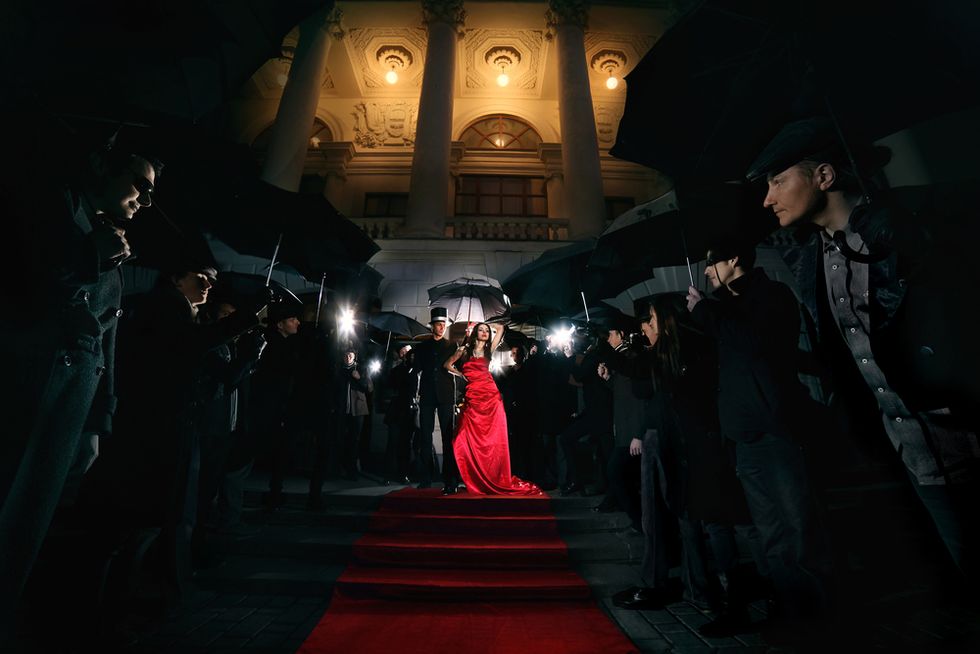Human beings are wired to love stories. U.S. moviegoers spent more than $10 billion at the box office last year, and readers spent about $29 billion on books. But even if you're not much for the movies and can't remember the last time you read a book, you've probably eagerly absorbed hundreds of stories over the past year. We soak in the stories behind our favorite sports figures (or celebrities), chew over the details of a compelling court case or real-life murder mystery, and click on the touching accounts of people who have triumphed over adversity or have made a difference that pour into our news and Facebook feeds.
Related: 4 Reasons You Might Not Get Recommendations On LinkedIn
So what does that have to do with LinkedIn, or with careers for that matter?
As a career-minded individual, you want to do the same thing that movie makers and authors and TV newscasters want to do: engage the person viewing your materials. And even better, make them think about you long after their brief perusal of your profile, just like a terrific blockbuster movie makes you want to discuss it as you're leaving the theater… and when you get back into the office on Monday morning.
“But—" you might be thinking “—most blockbusters are fiction, and I can't make up my career history. I have to stick to the facts!"
And it's true… you do have to stick to the facts. (At least if you care about your reputation or keeping your job!) But you have a lot of freedom in how you present those facts. And if you find a way to tell a compelling story alongside the facts, you will make a memorable impression on anyone who reads your profile. Research has proven that when we hear a story, the same parts of our brain are activated as if we were experiencing the events first-hand. We then look for ways to relate the story to our own experiences, giving us a connection with that story or storyteller.
So, would your
LinkedIn profile be considered more of a B movie or a blockbuster? If it's not very memorable, how do you as a job seeker or someone building your brand start telling stories?
Identify turning points.
Think over your life and work experiences, and those events or thought processes that set you on a different course than you'd been headed, or changed your approach to life, work, or the people around you.
Start with the story elements.
(i.e. plot, characters, setting, conflict, resolution, and the moral of the story). What happened? Why? How was it resolved? What did you learn from it?
Figure out the “fit."
Of all the turning points and the “stories" you thought of, are there any that reflect some key characteristics or attitudes that are in line with the image or brand you want to project? Do they represent you and who you really are at this point in time? Keep 1-2 of the best-fitting stories to work with, but keep in mind that even your leftover “story ideas" may make great answers to
interview questions.
Write it rough.
Briefly include all of the story elements, making a special effort to articulate how this experience or event changed you or your approach
for the better.
Refine till it shines.
Experiment with rewording your story, rearranging sentences, or reworking it so that it sounds like you and is relatable. Most importantly, pare it down to its essentials. You are working with a piece of prime real estate in your LinkedIn profile, and you don't want to take up all of your room with one story.
So what does storytelling actually look like? Here's one of my personal stories as an example:
“It is possible to achieve your dreams! For years, I was unsure of what I wanted for my career. I had an eclectic career path, searching for that 'right fit.' I dreamed of owning a business, and writing for a living, but didn't know how to achieve that.
A
career coach helped me see what was possible. Coaching can provide the same direction for you."
All of the basic storytelling elements are there—characters, conflict, resolution, plot, and moral—but it's told in my voice and has my unique spin. For most of us, storytelling takes a bit of practice (and a lot of revision)… but connecting with your viewer makes it oh-so-worth-it!
Please feel free to reach out to me with any questions.
This post was originally published on an earlier date.Related Posts
Top 10 Resume Trends For 2014The Worst Resume Advice I've EVER HeardResume Advice From Your Next BossAbout the author
Kristin S. Johnson is a TORI award-winning, 6-times certified resume writer,
job search coach, and social media consultant. Her approach is cutting-edge, creative, and kind. As owner of Profession Direction, LLC, she works with professionals and aspiring executives across the country.
Disclosure: This post is sponsored by a CAREEREALISM-approved expert. 

 Bigstock
Bigstock Bigstock
Bigstock Bigstock
Bigstock


